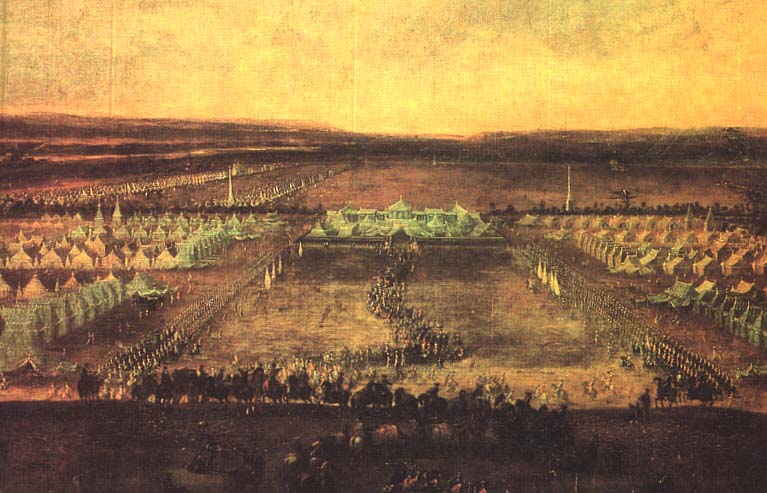|
Wülknitz
Wülknitz is a municipality in the district of Meißen (district), Meißen, in Saxony, Germany. History Wülknitz was the first time in 1262, Lichtensee in 1032, Tiefenau in 1013 and Peritz mentioned in records in 1266. In 1730 August the Strong held a grand military exercise near Zeithain. At this occasion an opera house was built in Streumen. On 1 January 1994 joined the current districts Heidehäuser, Lichtensee, Peritz, Streumen, Tiefenau (since November 1, 1952 by incorporation of a district Lichtensee) and Wülknitz to present Wülknitz community together. References Meissen (district) {{Meissen-geo-stub ... [...More Info...] [...Related Items...] OR: [Wikipedia] [Google] [Baidu] |
Meißen (district)
Meissen () is a district (''Districts of Germany, Kreis'') in Saxony, Germany. It is bounded by (from the north and clockwise) the state of Brandenburg, the district of Bautzen (district), Bautzen, the List of German urban districts, urban district Dresden, the districts Sächsische Schweiz-Osterzgebirge, Mittelsachsen and Nordsachsen. History The district dates back to the ''Amt Meißen'', which was first mentioned in 1334. The district was ruled by the House of Wettin, Wettin dynasty. The List of Margraves of Meissen, Margraves of what then became the Margravate of Meissen created the administrative division (''Amt'') in the 13th century. In 1835 the ''Amt'' was converted into an ''Amtshauptmannschaft'', with the area of the current district covered by the ''Amtshauptmannschaften'' Meissen, Dresden and Großenhain. In 1939, these were renamed ''Landkreise'' (districts). In the administrative reform of 1952, several municipalities were transferred to the districts of Freiberg and ... [...More Info...] [...Related Items...] OR: [Wikipedia] [Google] [Baidu] |
Saxony
Saxony, officially the Free State of Saxony, is a landlocked state of Germany, bordering the states of Brandenburg, Saxony-Anhalt, Thuringia, and Bavaria, as well as the countries of Poland and the Czech Republic. Its capital is Dresden, and its largest city is Leipzig. Saxony is the List of German states by area, tenth largest of Germany's sixteen states, with an area of , and the List of German states by population, sixth most populous, with more than 4 million inhabitants. The term Saxony (other), Saxony has been in use for more than a millennium. It was used for the medieval Duchy of Saxony, the Electorate of Saxony of the Holy Roman Empire, the Kingdom of Saxony, and twice for a republic. The first Free State of Saxony was established in 1918 as a constituent state of the Weimar Republic. After World War II, it was under Soviet occupation before it became part of communist East Germany and was abolished by the government in 1952. Following German reunificat ... [...More Info...] [...Related Items...] OR: [Wikipedia] [Google] [Baidu] |
Germany
Germany, officially the Federal Republic of Germany, is a country in Central Europe. It lies between the Baltic Sea and the North Sea to the north and the Alps to the south. Its sixteen States of Germany, constituent states have a total population of over 84 million in an area of , making it the most populous member state of the European Union. It borders Denmark to the north, Poland and the Czech Republic to the east, Austria and Switzerland to the south, and France, Luxembourg, Belgium, and the Netherlands to the west. The Capital of Germany, nation's capital and List of cities in Germany by population, most populous city is Berlin and its main financial centre is Frankfurt; the largest urban area is the Ruhr. Settlement in the territory of modern Germany began in the Lower Paleolithic, with various tribes inhabiting it from the Neolithic onward, chiefly the Celts. Various Germanic peoples, Germanic tribes have inhabited the northern parts of modern Germany since classical ... [...More Info...] [...Related Items...] OR: [Wikipedia] [Google] [Baidu] |
August The Strong
Augustus II the Strong (12 May 1670 – 1 February 1733), was Elector of Saxony from 1694 as well as King of Poland and Grand Duke of Lithuania from 1697 to 1706 and from 1709 until his death in 1733. He belonged to the Albertine branch of the House of Wettin. Augustus' great physical strength earned him the nicknames "the Strong", "the Saxon Hercules" and "Iron-Hand". He liked to show that he lived up to his name by breaking horseshoes with his bare hands and engaging in fox tossing by holding the end of his sling with just one finger while two of the strongest men in his court held the other end.Sacheverell Sitwell. ''The Hunters and the Hunted'', p. 60. Macmillan, 1947. He is also notable for fathering a very large number of children, with contemporary sources claiming a total of between 360 and 380. In order to be elected king of the Polish–Lithuanian Commonwealth, Augustus converted to Roman Catholicism. As a Catholic, he received the Order of the Golden Fleece from the ... [...More Info...] [...Related Items...] OR: [Wikipedia] [Google] [Baidu] |
Zeithain
Zeithain is a municipality in the district of Meißen, in Saxony, in eastern Germany. History Historically, it is known for the Zeithain Encampment (''Zeithainer Zeltlager'' or ''Zeithainer Lustlager'', i. e. the pleasure camp of Zeithain), which was a huge agglomeration of tents and troops, involving the whole 27,000-men-strong army of Augustus II the Strong between the towns of Zeithain and Glaubitz. This event took place from 1 to 26 June 1730.Holger Schuckelt: ''The Turkish Chamber: Oriental Splendour in the Dresden Armoury'', Munich: Deutscher Kunstverlag, 2010, , p. 112 After the victorious conclusion of the Great Northern War, the Polish-Saxon king had his army reorganized and equipped and now presented it in a large, magnificent maneuver, organized by Field Marshal Count August Christoph von Wackerbarth, to the Prussian king present, Frederick William I, and 48 invited European princes with their military officers as well as envoys of the European powers. It was not only ... [...More Info...] [...Related Items...] OR: [Wikipedia] [Google] [Baidu] |

